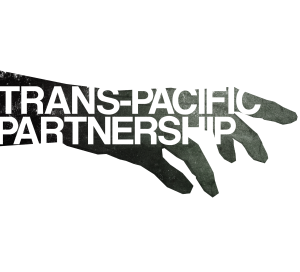The following guest post was written by Ed Schultz, the former host of “The Ed Show” on MSNBC and current host of “The Ed Schultz Show”.
 If implemented, the Trans-Pacific Partnership (TPP) could undermine many of President Barack Obama’s landmark achievements and thus his legacy on jobs and economic recovery, health care access, financial reform – and close to Michigan’s heart – the U.S. auto industry rescue and more. The great mystery is why Obama called for congressional passage of the TPP in his final State of the Union address?
If implemented, the Trans-Pacific Partnership (TPP) could undermine many of President Barack Obama’s landmark achievements and thus his legacy on jobs and economic recovery, health care access, financial reform – and close to Michigan’s heart – the U.S. auto industry rescue and more. The great mystery is why Obama called for congressional passage of the TPP in his final State of the Union address?
The TPP text was finally released in November after seven years of secretive talks. As The Washington Post reported, 500 U.S. trade advisors representing corporate interests had special access while Congress, the public and press were shut out. Not surprisingly, the Chamber of Commerce, Business Roundtable and similar corporate lobbies support the TPP. Opposing is the most diverse coalition of progressive organizations ever assembled to battle against a trade deal.
The implications of what stands to be the mother of all congressional trade fights are perverse. Obama’s address focused on his vision for America’s future, but the TPP stands to throw us backwards into more of the same economic disaster that has a large share of the American electorate fuming mad and seeking alternatives in the candidacies of Bernie Sanders and Donald Trump.
Consider: The president helped pull the U.S. out of recession after the global financial crisis. But the administration’s only major study on TPP’s economic impact found it would result in 0.00% increased U.S. economic growth if all tariffs on all products were eliminated, which did not occur.
The president says he’s focused on the issue on the top of most Americans’ agenda: jobs. But the TPP includes rules that make it cheaper and less risky to offshore U.S. jobs to low wage nations. The pro-free trade Cato Institute calls these investor protections a subsidy on offshoring.
Since the North American Free Trade Agreement (NAFTA) that the TPP would expand on, more than 57,000 U.S. manufacturing facilities have closed and five million U.S. manufacturing jobs – one in four – were lost. More than 875,000 U.S. workers were certified as NAFTA casualties under just one narrow U.S. Department of Labor program.
Obama’s 2015 SOTU was all about battling income inequality. But a recent study finds that the TPP would spell a pay cut for all but the richest 10 percent of U.S. workers by exacerbating income inequality. If Americans face more competition from Vietnamese workers who make less than 65 cents an hour, of course our wages will be pushed downwards.
Historically, 60 percent of U.S. manufacturing workers losing jobs to trade who find reemployment face pay cuts, with one in three losing more than 20 percent, per Labor Department data. There is academic consensus that NAFTA-style trade has contributed to the unprecedented rise in inequality.
Obama’s most recent free trade agreement (FTA) with Korea that served as the TPP’s template had led to a 90 percent jump in our goods trade deficit with Korea as our exports fell 7 percent and imports surged. That’s no fluke. We had a $177 billion goods trade deficit with our 20 FTA partners.
Our auto trade deficit exploded under the Korea FTA. The TPP could threaten the president’s U.S. auto industry rescue and thousands of U.S. jobs. Shockingly the TPP would allow duty free imports of autos with majority Chinese content, even though China’s not even in the deal.
Despite bipartisan congressional demands, the pact does not include disciplines on currency cheating. So whatever ostensible new market access we might gain with TPP tariff cuts can eliminated away overnight by Japan, Malaysia, Vietnam and other TPP countries notorious for devaluing their currencies to subsidize their exports and price our goods out of their markets. Ford has supported all past U.S. trade deals, but opposes the TPP.
The TPP also would contradict Obama efforts to reduce U.S. health care costs by expanding monopoly patent protections for big drug firms, as Doctors Without Borders notes, that allow drug firms to stop competition and raise prices. As seniors groups note, the TPP would also empowering drug firms to meddle in U.S. government Medicare and Medicaid decisions.
And the TPP could help banks unravel the new rules Obama achieved on Wall Street by prohibiting bans on risky financial products and “too big to fail” safeguards while empowering foreign banks to “sue” the U.S. government over new financial regulations.
Obama said that the TPP was a renegotiation of NAFTA. What he did not say is that the pact expands on NAFTA’s offshoring incentives, its ban on Buy American procurement rules, and the types of policies that foreign corporations can attack before investor-state dispute system (ISDS) tribunals of private corporate attorneys to demand taxpayer compensation.
Saving the American middle class requires us to stop the TPP, which can only go into effect if Congress approves it. Perversely, killing the TPP may also save Obama’s legacy.
[CC image credit: Jared Rodriguez/Truthout | Flickr.com]



